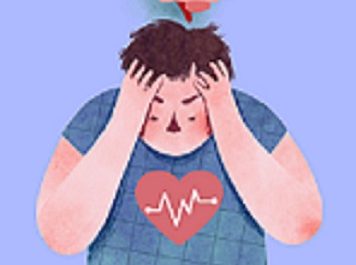Child mental health is an essential aspect of a child’s overall well-being, as it affects their emotional, behavioral, and social development. Good mental health allows children to handle stress, build healthy relationships, and succeed academically and socially. However, mental health problems are prevalent among children, and recognizing and addressing these issues is crucial for their future success.
Importance of Child Mental Health:
A child’s mental health can have a significant impact on their daily life, including their ability to learn, grow, and form relationships. Neglecting a child’s mental health can lead to poor academic performance, behavioral issues, and social isolation, among other problems. On the other hand, prioritizing a child’s mental health can result in improved academic performance, better self-esteem, and better overall physical health.
Symptoms of Mental Health Problems in Children:
Identifying mental health problems in children can be challenging as many symptoms overlap with normal behavior. However, some common symptoms of mental health issues in children include:
Anxiety Disorders: Children may experience excessive and persistent worry or fear, which can interfere with their daily activities and relationships. Anxiety disorders may include generalized anxiety disorder, social anxiety disorder, and separation anxiety disorder.
Depression: Depression can affect children and lead to persistent feelings of sadness, hopelessness, and loss of interest in activities they once enjoyed. It can affect their overall functioning and may result in poor academic performance, difficulty sleeping, and social withdrawal.
Attention-Deficit/Hyperactivity Disorder (ADHD): Children with ADHD may have difficulty paying attention, hyperactivity, and impulsivity. These symptoms can impact their school performance, social relationships, and self-esteem.
Conduct Disorder: Children with conduct disorder may exhibit aggressive and antisocial behavior, such as bullying, lying, stealing, and violating rules. These behaviors can impact their relationships and academic performance and can lead to legal problems in adolescence.
Autism Spectrum Disorder (ASD): ASD is a developmental disorder that affects social communication and interaction. Children with ASD may have difficulty with social interaction, language, and restricted or repetitive behaviors.
Substance abuse: Substance abuse has negative effects on a child’s mental health, including an increased risk of anxiety, depression, and other mental health disorders. Substance abuse can also impact cognitive function, memory, and learning.
Causes of child mental health problems
There is no single cause of child mental health problems, and many factors can contribute to a child’s mental health and well-being. Some common causes of child mental health problems include:
Genetics: Mental health conditions can run in families, and children may be at higher risk of developing a mental health condition if a family member has a history of the same condition.
Environmental factors: A child’s environment can impact their mental health. Exposure to trauma, abuse, neglect, poverty, or family conflict can increase the risk of developing a mental health condition.
Biological factors: Chemical imbalances in the brain, brain injuries, or other biological factors can contribute to mental health conditions in children.
Developmental factors: Children’s brains and bodies are still developing, and changes in hormones and brain chemistry can impact their mental health. Certain developmental disorders, such as autism spectrum disorder, can also impact mental health.
Social and cultural factors: Cultural beliefs and societal norms can impact a child’s mental health. Social isolation, bullying, or discrimination can also contribute to mental health problems.
Parental role: Parents play a crucial role in supporting their child’s mental health and well-being. Here are some ways parents can positively impact their child’s mental health:
Create a supportive and loving environment: Children need to feel loved, supported, and safe to thrive. Parents can create a positive and nurturing environment by providing a stable and predictable home, showing affection and support, and listening to their children.
Foster open communication: It is essential for children to feel comfortable talking to their parents about their thoughts and feelings. Parents can encourage open communication by actively listening to their children, asking questions, and avoiding judgment.
Promote healthy habits: Physical health and mental health are interconnected, and parents can support their child’s mental health by promoting healthy habits such as regular exercise, healthy eating, and quality sleep.
Set appropriate boundaries: Children need structure and routine, and parents can provide this by setting appropriate boundaries and rules. Consistent rules and consequences can help children feel safe and secure.
Seek professional help when needed: If a child is experiencing mental health problems, it is essential to seek professional help from a mental health provider. Parents can play an important role in helping their children receive proper treatment and support.
By providing a supportive and loving environment, fostering open communication, promoting healthy habits, setting appropriate boundaries, and seeking professional help when needed, parents can positively impact their child’s mental health and well-being.
Treatment of child mental health problems:
Mental health issues in children can be treated with a combination of therapy, medication, and lifestyle changes. Therapy can help children learn coping strategies, develop problem-solving skills, and improve their social interactions. Medication may be prescribed in some cases to help alleviate symptoms such as anxiety or depression. Additionally, lifestyle changes such as regular exercise, healthy eating, and quality sleep can contribute to improved mental health. In conclusion, a child’s mental health is a critical component of a child’s overall health and well-being. Identifying and treating mental health issues in children can lead to better academic performance, improved relationships, and an overall better quality of life. If you suspect your child is experiencing mental health problems, seek professional help from a mental health professional.





Meri beti ha 22 years ki usko dexlexia ka problem ha usko Ghussa bohat ata ha koi BAAT karo to usko samjhna ma time lagta ha uska Liya koi treatment ha apka pass
syed nadeem kindly read this article it help you
Understanding Dyslexia: Causes, Symptoms, and Treatment Options
https://advance-psychology.com/2023/02/17/understanding-dyslexia-causes-symptoms-and-treatment-options/